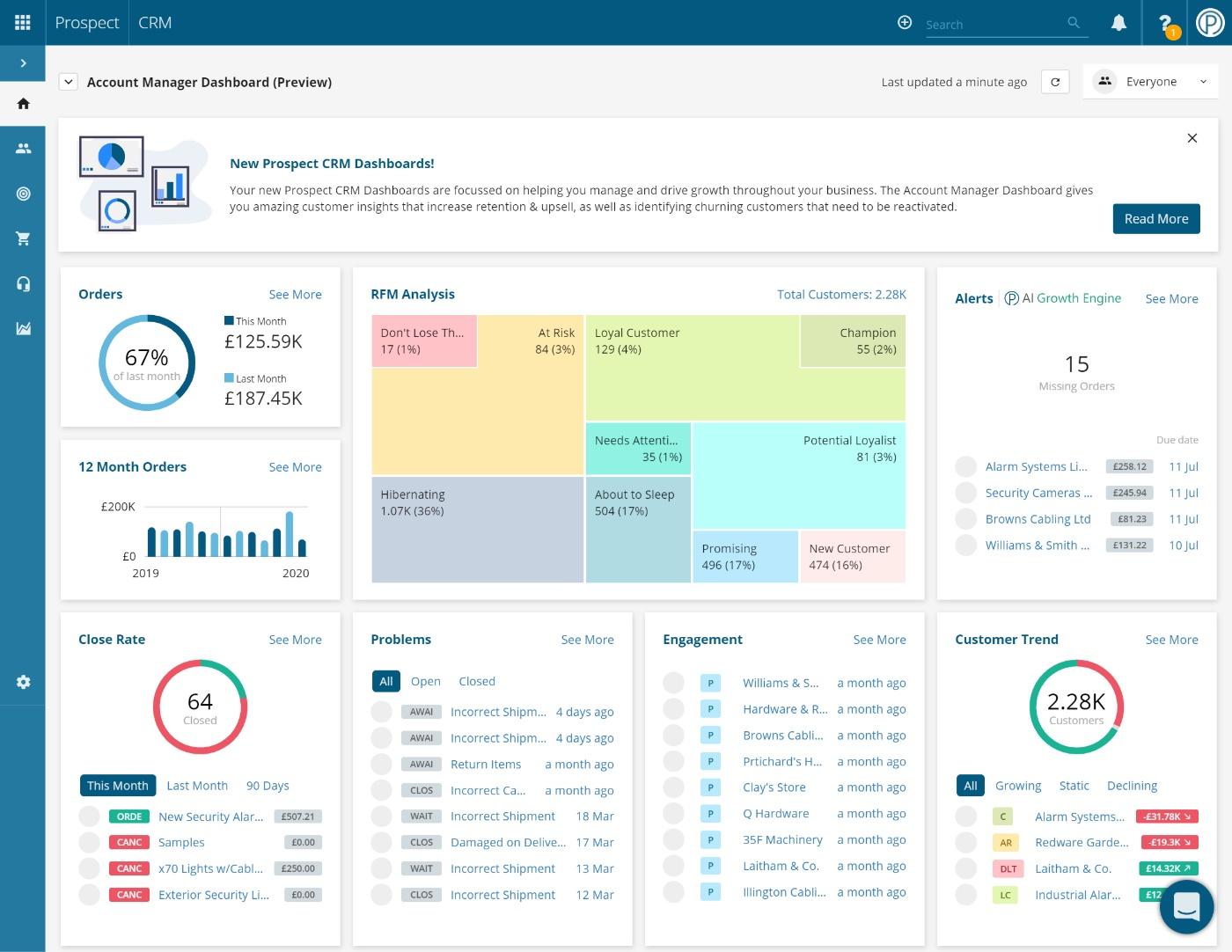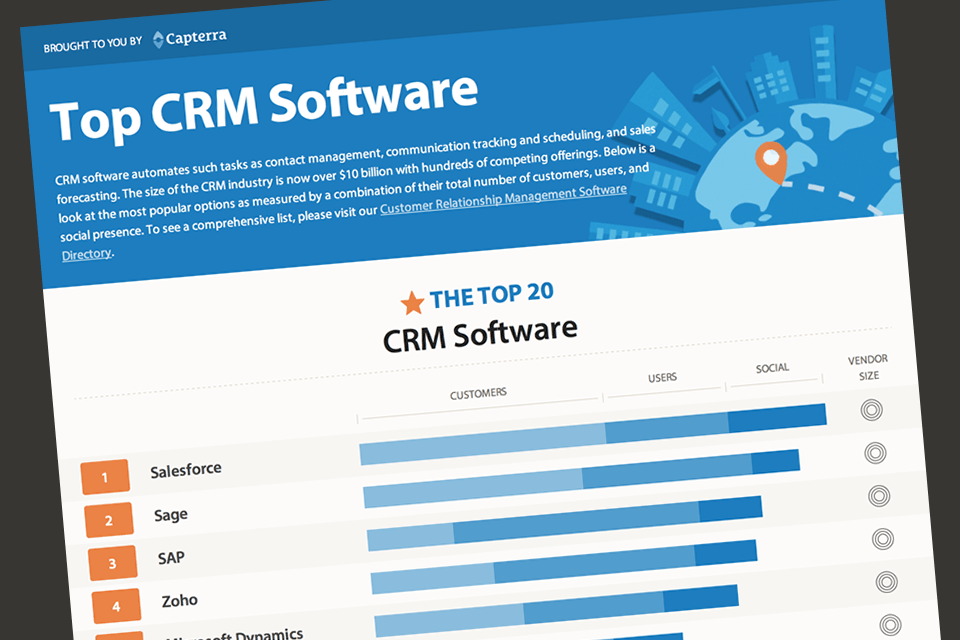In the realm of sales and marketing, a CRM (Customer Relationship Management) system reigns supreme as an indispensable tool for businesses seeking to optimize their prospecting efforts. Embarking on a journey to identify the best CRM for prospecting, we delve into the intricacies of this software, exploring its essential features, advanced capabilities, and proven best practices to elevate your lead generation game.
With the right CRM in your arsenal, you gain the power to streamline lead capture, nurture relationships, track your sales pipeline with precision, and automate email marketing campaigns. Join us as we uncover the secrets to unlocking the full potential of CRM software, empowering your sales team to identify, qualify, and convert more leads into loyal customers.
CRM Market Landscape

The Customer Relationship Management (CRM) market is a rapidly growing and evolving landscape. The market is dominated by a few key players, such as Salesforce, Microsoft Dynamics, and SAP, but there are also a number of smaller, niche players that offer specialized solutions for specific industries or business needs.
One of the key trends in the CRM market is the increasing adoption of cloud-based solutions. Cloud-based CRMs offer a number of advantages over on-premises solutions, such as lower upfront costs, greater flexibility, and easier scalability. As a result, cloud-based CRMs are expected to continue to gain market share in the coming years.
Specific Needs of Businesses Looking for a CRM for Prospecting
Businesses looking for a CRM for prospecting should look for a solution that offers the following features:
- Contact management: The CRM should allow you to easily store and manage contact information for potential customers.
- Lead tracking: The CRM should allow you to track the progress of your leads through the sales pipeline.
- Marketing automation: The CRM should allow you to automate your marketing campaigns, such as email marketing and social media marketing.
- Sales forecasting: The CRM should allow you to forecast your sales pipeline and identify opportunities for growth.
- Reporting and analytics: The CRM should provide you with reporting and analytics tools that allow you to track your progress and identify areas for improvement.
Core Features for Prospecting
A CRM system designed for effective prospecting should offer a robust suite of features that streamline and enhance the process of identifying, qualifying, and nurturing potential customers.
These essential features include:
Lead Capture and Management
- Capture leads from various sources, such as website forms, email campaigns, and social media.
- Qualify leads based on predefined criteria to identify those with the highest potential.
- Organize leads into segments and lists for targeted marketing and follow-up.
Contact and Relationship Management
- Store and manage contact information, including demographics, communication preferences, and social media profiles.
- Track interactions with leads and customers, including emails, phone calls, and meetings.
- Build and nurture relationships by automating personalized communication and providing valuable content.
Sales Pipeline Tracking
- Create and manage sales pipelines to track the progress of leads through different stages.
- Monitor key metrics such as conversion rates, sales velocity, and average deal size.
- Identify bottlenecks and optimize the sales process for improved efficiency.
Email Marketing and Automation
- Create and send targeted email campaigns to leads and customers.
- Automate email sequences based on specific triggers, such as lead behavior or lifecycle stage.
- Track email performance metrics to optimize campaigns and improve engagement.
Best CRM Software Options
Selecting the right CRM software is crucial for successful prospecting. Here’s a comprehensive comparison of the top CRM options:
CRM Software Comparison
| CRM | Key Features | Pricing | Customer Reviews |
|---|---|---|---|
| Salesforce |
|
|
|
| HubSpot |
|
|
|
| Zoho CRM |
|
|
|
| Pipedrive |
|
|
|
| Microsoft Dynamics 365 |
|
|
|
Advanced Features for Prospecting
Advanced CRM features can significantly enhance prospecting efforts by providing businesses with powerful tools to identify and qualify leads more effectively. These features include AI-powered lead scoring, predictive analytics, and social media integration.
By leveraging these advanced features, businesses can streamline their prospecting processes, increase the quality of their leads, and ultimately improve their sales performance.
AI-Powered Lead Scoring
AI-powered lead scoring uses machine learning algorithms to automatically assign scores to leads based on their characteristics, behaviors, and interactions with the business. This allows businesses to prioritize the most promising leads and focus their efforts on those who are most likely to convert into customers.
Predictive Analytics
Predictive analytics uses statistical models to identify patterns and trends in lead behavior. This information can be used to predict the likelihood that a lead will convert into a customer, allowing businesses to allocate their resources more effectively.
Social Media Integration, Best crm for prospecting
Social media integration allows businesses to connect their CRM with their social media accounts. This enables them to track lead interactions on social media, identify potential leads, and nurture relationships with existing leads.
Implementation and Best Practices
Implementing a CRM for prospecting requires careful planning and execution. Here are some best practices to follow:
Setting Up Lead Capture Forms
Lead capture forms are essential for collecting prospect information. Design forms that are concise, clear, and mobile-responsive. Use clear calls-to-action and consider offering incentives for form completion.
Creating Automated Workflows
Automate repetitive tasks like lead scoring, lead routing, and follow-up emails. This streamlines the prospecting process and ensures timely communication with prospects.
Training Sales Teams on CRM Usage
Train sales teams thoroughly on CRM usage. This includes understanding lead management features, data entry best practices, and reporting capabilities.
Best Practices for Maximizing Prospecting Results
Maximize prospecting results by:
- Using lead scoring to prioritize high-potential prospects.
- Personalizing outreach based on prospect profiles.
- Tracking key metrics to measure campaign effectiveness.
- Regularly reviewing and updating CRM data to ensure accuracy.
Last Point: Best Crm For Prospecting

As we conclude our exploration of the best CRM for prospecting, it’s evident that choosing the right software can transform your sales process. By carefully considering the needs of your business, leveraging advanced features, and implementing best practices, you can empower your team to achieve remarkable results.
Embrace the power of CRM technology and watch your prospecting efforts soar to new heights.
